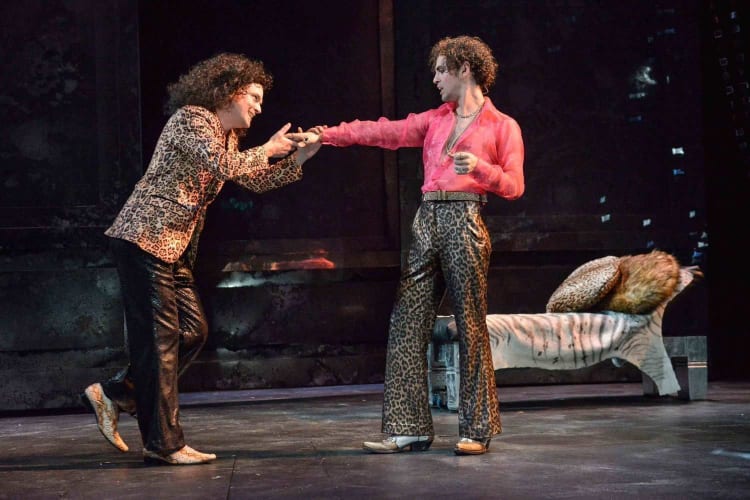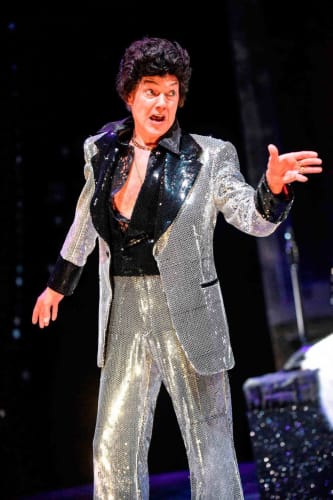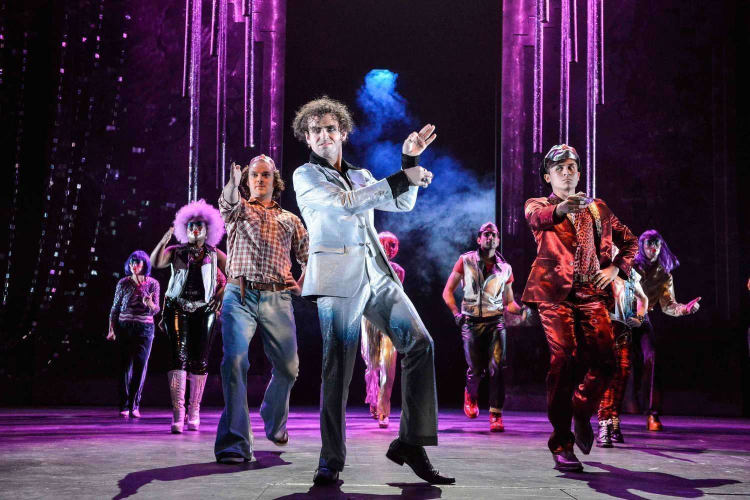The final offering in Nottingham Playhouse’s Sweet Vengeance season is a strange choice: not because Thomas Middleton’s 400-year-old play does not fit into the genre but because it lacks the incisive, gripping script of its predecessors.
Anthony Shaffer’s Sleuth and Darkness, Darkness by John Harvey proved to be memorable, exciting productions. The Revenger’s Tragedy does not reach the same heights.
This is partly because Middleton’s script is a poor version of Shakespeare, even though he supposedly collaborated on some of the Bard’s greatest works; and Playhouse associate director Fiona Buffini’s production takes on a concept that for the most part does not work.
Buffini realised that some of the excesses explored in The Revenger’s Tragedy were also prevalent in the 1970s. A sense of flamboyance and the misuse of power were typical of both eras.
But Buffini’s decisions to dress her cast in flares, glitter and brightly coloured Afro wigs redolent of the glam rock age and to have ‘70s music throughout seem brave yet odd; the concept overpowers the play.
The production starts impressively, a single spot illuminating a skull on a chair before a blackout during which the beginning of T Rex’s “Children of the Revolution” is played at high volume. It startles some of the audience. However, the play struggles to match that highlight over the next two hours.
Opening bars of glam rock songs pepper the first half while disco numbers take over in the second. There is a superb version of Walter Murphy’s “A Fifth of Beethoven”, with Declan Perring as Lussurioso giving John Travolta a run for his money. But the inclusion of the song was lost on me and, I suspect, a good many in the audience. Nor could I understand why the end of “Bohemian Rhapsody” found its way into the piece.
The Revenger’s Tragedy is built around the character of Vindice who is determined to take action after his fiancée is killed by the Duke. But Vindice is in danger of becoming as bad as the amoral people he despises as he rages against a corrupt system in which those with power can get away with murder.
One of the problems with Middleton’s play is that few of the characters elicit sympathy and those who do have relatively small parts. While you recognise Vindice’s plight—Alexander Campbell gives a solid but not exceptional performance—you cannot condone his thirst for revenge.
Perring gives a credible performance as the camp, occasionally outrageous Lussurioso but again you tend not to care about whether he, as heir to the throne, will actually take his father’s place.
Paul Brightwell as the Duke has more than a passing resemblance to Gary Glitter; the Duke’s sleazy mannerisms, especially with a couple of young girls who ask for his autograph, are creepily realistic.
The Revenger’s Tragedy is not to everyone’s taste: on the night I saw it there was little applause at the interval and some people did not return for the second half. It is debatable whether they found the concept or the play itself a disappointment.


